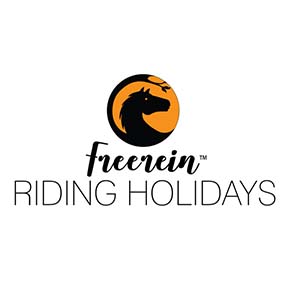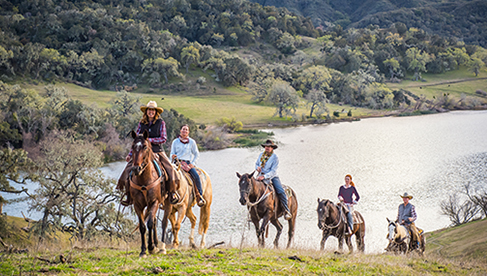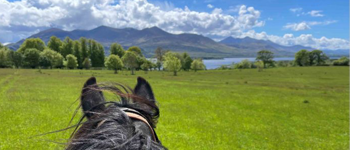Achieving Equestrian Success- Your Horse and Your Team
Assembling a team for your equestrian endeavors–– the secret weapon to your horse's soundness and success
by Bernadette Palmeri with photographs and model courtesy of Rivendell Riding Academy
 Let us take a moment to recognize one of the greatest secrets about horseback riding - while it may seem like an individual sport, it truly takes a team to take care of your horse and to accomplish your riding goals. As riders, we often credit so much of our progress to one specific person or situation: the new trainer you started taking lessons from, the new yoga class that has really helped you stay centered and balanced, this month's latest supplement that has cured your horse's digestion issues, etc.
Let us take a moment to recognize one of the greatest secrets about horseback riding - while it may seem like an individual sport, it truly takes a team to take care of your horse and to accomplish your riding goals. As riders, we often credit so much of our progress to one specific person or situation: the new trainer you started taking lessons from, the new yoga class that has really helped you stay centered and balanced, this month's latest supplement that has cured your horse's digestion issues, etc.
In reality there is never just one factor that can produce miraculous growth, but rather a number of small changes that can result in a great deal of progress. Because riding is so demanding an endeavor on the part of the horse's body and our own, it is helpful to take a moment and assess the team of individuals you have on your side, supporting your short and long-term goals.
The top three people with whom you must form close relationships and feel comfortable communicating, are your trainer, your vet, and of course, your farrier. These three sources of knowledge and wisdom are crucial to understanding how to set yourself up for success no matter what lies ahead on the path for you and your horse.
So often we only think to reach out to our veterinarian for answers about lameness. While your vet is a crucial part of your task force, your farrier can easily and wrongfully be overlooked when it comes to health concerns about your horse. There are countless times when so many of us think to bombard our horses with supplements for a spectrum of lameness and behavioral issues without even thinking of their hooves. This is really a two-part concern:
On one hand all those supplements for their muscles, joints, coats, digestion, hydration, etc. can in fact be harmful to their base of support. Just like if you put too many processed chemicals in your body, your horse's body is not designed to function on a litany of unnatural prescriptions. Secondly, what you're seeing as a soreness, lameness, or unwillingness to work could very easily be due to pain in your horse's hooves. When you open the door to include your farrier in these diagnoses about your horse's well-being, the health of your horse's hooves will never be neglected. Furthermore, a knowledgeable source will be able to contribute and bring a different background and understanding of the horse's body to the discussion.
For many of us who keep our horses at a boarding facility, we are rarely present when our horses are getting new shoes. This can be extremely detrimental to creating a relationship with your farrier. Because farriers do a great deal of the work without all the glory that the vets receive, it is up to you to show your farrier that you understand and appreciate that he/she is responsible for a great deal of your horse's soundness and happiness. After all, who is going to tack your horse's shoe back on at 5 o'clock in the morning as you leave for your horse show?
One way to open up a line of communication with your farrier is to hold your horse while he gets shod. While this may seem inconvenient, it is the respectful thing to do. It is also a great chance to ask some important questions and create a plan that works with each member of your team -- you, your vet, your farrier, your trainer, and most importantly, your horse.
For example, perhaps you plan to hunter pace this fall every weekend for the months of September through November. In that case, you will need to make sure you have all the info from your trainer about your horse's needs (conditioning, etc.). Maybe you are also planning on starting your horse on a joint supplement recommended by your vet for the extra work over the next few months. Talk to your farrier about these plans because he/she may want to adjust your horse's shoeing schedule accordingly. Maybe he will need to start using pads or perhaps he will need to be shod more frequently over the course of your season because of the extra work.
No matter your plans, having each professional involved and feeling like a necessary part of the team will help you to accomplish all your horseback riding goals.
About the Author: Bernadette Palmeri is a recent graduate of Connecticut College and currently enjoys Eventing with her horses throughout the Northeast.




